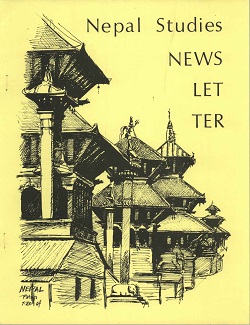Author Biography
Mahendra P Lama, is a development economist and a Professor in India’s premier Jawaharlal Nehru University in New Delhi. He has extensively worked on issues of development and cooperation in South and South East Asia, North East region of India and southwest region of China in areas like trade, investment, environment, migration, development, water and energy sectors. He has participated in high-level multi-country talks and served various high level committees. He was the Chief Economic Advisor with a Cabinet Minister Rank in the Government of Sikkim during 2002-2007. He was the Founding Vice Chancellor of Central University of Sikkim and became the youngest head of a national university in India. He wrote the First Development Plan (1989) of Darjeeling Gorkha Hill Council; First Economic Survey (2005) and First Human Development Report (2001) of Sikkim, co-authored the Vision 2020 of the North East Region of India (2008) . He is considered as the architect of reopening of historic trade route between Sikkim in India and Tibet Autonomous Region in China after 44 years in 2006. He also served as Member of the National Security Advisory Board of the Government of India and Pro-Vice Chancellor of Indira Gandhi National Open University and has been a prolific author, with many books and articles to his credit.
Roshan P. Rai is a development worker with DLR Prerna, Darjeeling-based NGO. He works on issues of environment and social equity in the Darjeeling Himalaya. Partnering with marginal communities, models have been initiated resulting in seminal experiences like Darjeeling’s first small farmer organic and fair-trade collective Mineral Spring Sanjukta Vikash Sanstha. With special interest on participatory governance, his intervention has revolved around inclusions in fair-trade movements in tea, conservation efforts, small farmer collectives and NGOs. He works on waste with Zero Waste Himalaya. Roshan engages at a landscape and policy level through his writings and educational institutions.
Abstract
This case study examines the relationship between everyday religion and resource management in the context of water resources in Darjeeling, India. It uses the notion and practice of chokho pani (pure and/or sacred water) as an interface between popular religious practices and the attempt to conserve water in Darjeeling township. Although the link between religion and environmental resource management is widely recognized, it remains a critical area of inquiry in the Himalaya. The complexity of water's social importance is vividly evident in Darjeeling. The town presents a rapidly urbanizing landscape with a diversity of peoples dependent upon a variety of water sources, making it an important Himalayan site for the study of religion and environment.
Acknowledgements
The authors would like to thank the India-China Institute, New School, New York and the able team led by Ashok Gurung and Dr. Georgina Drew for this wonderful space and support to explore everyday religion and water in the Darjeeling Sikkim Himalaya as well as be part of a trans-boundary knowledge scape enabling reflective spaces for us to look into our own living environment. Arun Chettri and Samar Sinha from Sikkim University, Gangtok were integral to Sikkim part of the project and their contributions and insights enabled conceptual clarity. The authors would also like to thank many leaders of various samaj in Darjeeling who inspired us to wade through many unknown pathways in Darjeeling town.
Creative Commons License

This work is licensed under a Creative Commons Attribution 4.0 License.
Recommended Citation
Lama, Mahendra P. and Rai, Roshan P. Mr.. 2016. Chokho Pani: An Interface Between Religion and Environment in Darjeeling. HIMALAYA 36(2).
Available at:
https://digitalcommons.macalester.edu/himalaya/vol36/iss2/13


